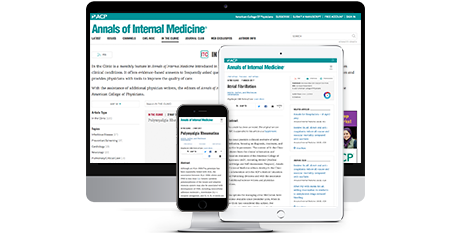Annals in the Clinic
Blood and urine tests are commonly performed by clinicians in both ambulatory and hospital settings that detect chronic and acute kidney disease. Thresholds for these tests have been established that signal the presence and severity of kidney injury or dysfunction. In the appropriate clinical context of a patient's history and physical examination, an abnormal test result should trigger specific actions for clinicians, including reviewing patient medication use, follow-up testing, prescribing lifestyle modifications, and specialist referral. Tests for kidney disease can also be used to determine the future risk for kidney failure as well as cardiovascular death.



